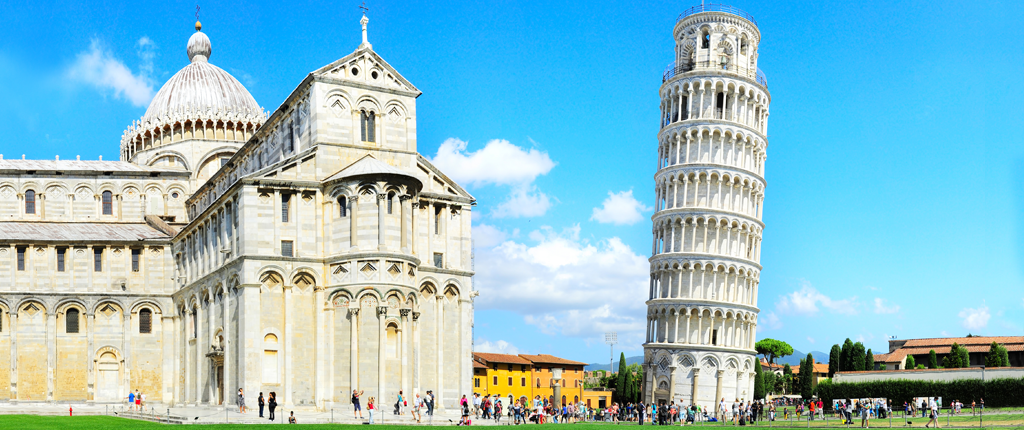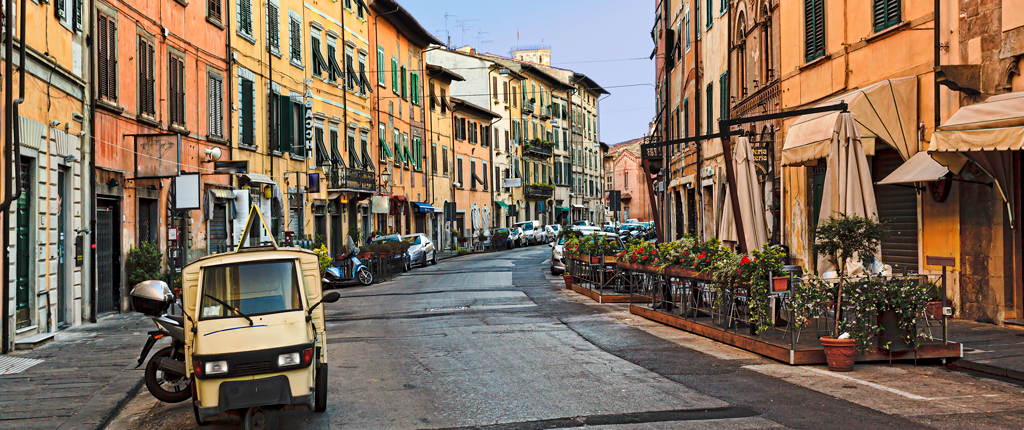UCLA Travel Study
History: Atlantic Foodways: Culture, Science, Governance
*Program Not Running Summer 2024*
Italy boasts one of the most complex and influential food cultures in the world. It was the birthplace of food studies, a rich food culture, renown food cuisines, the Slow Food movement, and global food policy institutions. One such institution is the United Nation’s Food and Agriculture Organization (FAO), headquartered in Rome, which contend with global hunger and improving food nutrition and food security, all central themes in this program. One course will offer an introduction to Italian food history and culture through the lens of the concept of terroir. We will focus on food products which are deeply tied to particular locations such as wine, olive oil, cheese, pasta and heritage pork and explore key features of the Italian food system as they have developed historically. The second will address the emergence of what was termed the “international food movement” in the 1930s. It will examine the development of the international bodies (such as the FAO and the World Food Programme, also headquartered in Rome and the 2020 recipient of Nobel Peace Prize) borne out of this movement as concerns emerged about food security, and their relevance to the governance of food world-wide. Being in Italy will enable us to have excursions and guest lectures on food history and law as well as observe artisanal culinary practices and sustainable forms of production.
Food studies is a growing minor at UCLA and both faculty teach in this area and are passionate about the importance of studying the culture, history and policy related to food especially in the context of global warming which is currently threatening global food supplies. This program will be relevant to students from the humanities, social sciences, stem fields, and policy.
Curriculum
Required Courses
All students will enroll in two required courses.
- HIST 101 (4 units)
- HIST C187O (4 units)
Course Descriptions
HIST. 101: Italian Terroir: Place, Craft, Taste (4 units)
This course offers an introduction to Italian food history and culture through the lens of the concept of terroir; thus we will focus on food products which are deeply tied to particular locations such as wine, olive oil, cheese, pasta and heritage pork and the role of markets in tying particular foods to specific places. We will explore key features of the Italian food system as they have developed historically from the middle ages through the post-war period and the rise of the Mussolini regime when certain foods came to symbolize the nation-state, and the emergence of the Slow Food movement which has become an important form of resistance to the globalization of the industrial food system of the United States.
HIST. C187O: Beginnings of International Food Governance (4 units)
This course will examine the development of the international bodies borne out of this movement and concerns about food security, many of whom are located in Italy, and their relevance to the governance of food world-wide. We will review this development in the following chronology: 1) League of Nation’s Mixed Committee on Nutrition (1935), 2) Hot Springs conference (1943), 3) Establishment of the FAO (1945), 4) Sir John Boyd Orr’s proposal for a World Food Board (1946), 5) Development of GATT (1947), 6) Establishment of World Health Organization (1948), and 7) Recognition of the right to food in Article 25(1) of the 1948 Universal Declaration of Human Rights.
Syllabus/Schedule
TBA. Syllabus and schedule are subject to change at the discretion of the instructor.
Grading
Travel Study courses must be taken for a letter grade. Grades are typically based on class attendance and participation, journals, a mid-term examination, and a final examination. Grading criteria is subject to change at the discretion of the instructor.
Textbooks
TBA. You are responsible for purchasing your own textbooks. We strongly suggest you read as much of the text material as possible before you depart. Textbook information will be available at a later date.
Budget and Financial Aid
| Budget Estimate | UC Undergrads | UC Grad Students | Visiting Student |
| Program Fee | $7100 | $7700 | $7700 |
| Textbooks | $100 | $100 | $100 |
| Airfare | $1500 | $1500 | $1500 |
| Meals | $1000 | $1000 | $1000 |
| Spending Money | $800 | $800 | $800 |
Program fee includes registration and course fees, accommodations, some meals, program excursions and health insurance. Program fee also includes transportation between Rome and Pisa.
Airfare, textbooks, optional courses, other meals, optional excursions, and any COVID-19 testing required for travel are additional.
Fees are subject to change by action of the UC Regents. View full fee disclaimer.
Document Fee
Non-UCLA students will be charged a $50 Document Fee. This is a one-time document fee which covers fees for first-class mailing of official transcripts, diploma and much more. Please visit the Registrar’s Office Website for more information. Matriculated UCLA Students: Please visit the Registrar’s Office Website for document fee information.
IEI Fee
All undergraduate students will be charged a $61 IEI fee per summer. The IEI (Instructional Enhancement Initiative) fee is a course materials fee that is charged in order to support the use of technology in undergraduate education at UCLA.
Budgeting
We recommend that you budget accordingly to cover optional sightseeing, laundry, internet cafes, emergencies, etc. How much to budget depends on your travel, entertainment and souvenir choices. It is always best to overestimate your spending. Take the time to research the cost of living in your destination and the activities you want to participate in while abroad.
Purchasing Airfare
We typically advise students to wait until late March to purchase airplane tickets for summer programs.
Optional 199 Course Fee
| Optional 199 | UC Undergrads | UC Grad Students | Visiting Students |
| Course Fee | TBA | TBA | TBA |
Fees are subject to change by action of the UC Regents. View full fee disclaimer.
Financial Aid
Financial aid for Summer Sessions Travel Study programs is available to qualified UCLA students. All other students should inquire about financial aid at their home institution. For details about the financial aid application process, please visit the Financial Aid section of this website.
On Location
Accommodations
Students will reside in a hotel in Rome for 1 week and another hotel in Pisa for 3 weeks.
UCLA Travel Study reserves the right to change housing location. Should this be necessary, we will arrange comparable accommodations elsewhere.
Meals
Students are responsible for most meals on the program. Breakfast will be included at both hotel accommodations.
Please let us know when you apply for this program if you have any special dietary needs as well as any physical or medical conditions. We will advise you accordingly.
Excursions
This program includes several excursions as part of its curriculum. A schedule of excursions will be available at a later date.
Free time is built into this program for independent sightseeing. If you plan on traveling extensively, we recommend that you budget additional spending money.




